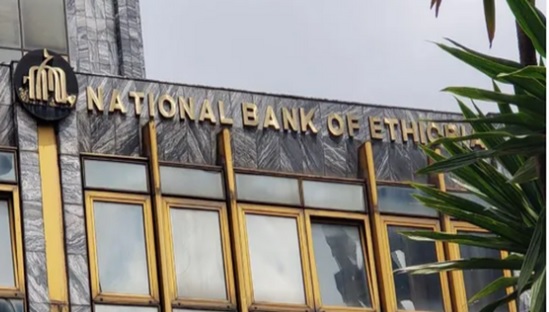
BY ABEBE WOLDEGIORGIS
After the downfall of the Derg regime some three decades back, the previous EPRDF led government took various measures to change the economy from command to the market led one and among others introducing new laws were found helpful to attract both domestic and foreign private investments; privatizing uncompetitive public enterprises; widening the space to the private sector to play pivotal role in the economy; and providing tax holidays to investors via establishing industrial parks and others. As a result, economic progress recognized by international financial institutions has been registered.
However, in the last three years, due to the outbreak of COVID 19 and war in the northern Ethiopia, the economy has been stagnated. In addition, inflation because of both domestic and external factors; shortage of hard currency and other macro economic difficulties posed challenges. Nevertheless, the government has tried its level best to undo the problems.
Abdulmenan Mohammed (PhD) is a financial analyst based in London and he recently made an interview with local media and reflected his view on the nation’s economy. As to him, to redress decade’s long economic problems, liberalizing the economy is essential. The recent invitation of foreign financial institutions to operate here should be seen as positive signs. However, he said that local banks are extremely worried that foreign banks will come in mass and force them out of the market.
But, that will depend on what type of service products the foreign banks will bring to Ethiopia. If foreign banks offer the same service lines as local banks, local banks will face difficulties. The worry is also there with the National Bank of Ethiopia (NBE) to some degree. That is why it is observed that a lot of restrictions in the banking open-up policy document and the draft proclamation of the Banking Business.
So, the NBE is not going to just open up the sector at once rather, it will be gradual. Only certain number of foreign banks will be allowed, and there will be a limit on the number of branches they can open and how much their management can be involved. The opening will take place in controlled scenarios that will not put local banks at risk.
But, basically, local banks should not be afraid of competition. It is not realistic to think the big international banks have the appetite to come to Ethiopia as the government expects. They know that Ethiopian market is too small for big financial institutions like Barkley. Most of the banks that will come are African.
Apart from that, NBE officials said all the laws and restrictions applied to local banks will be applied to foreign banks too. This will also be highly discouraging for the foreign banks which do not want government intervention to this extent. There are a lot of interventions apart from the 21 percent mandatory investment in government bonds.
Asked whether the merging of local banks can be taken in to account as a solution to withstand foreign banks in competition, Abdulmenan mentioned that if their services and market environment are similar, they can succeed by merging. But if a merger is forced upon the local banks by the NBE, the outcome will be bad. A merger should be based on market congruency and the full consent of the banks. The shareholders also must agree. Local banks can also consider specialization in certain business areas.
Abdulmenan further said that access to finance is a big challenge in the Ethiopian economy. This is because the economy is largely informal. Lack of access to finance cannot be fully attributed to the banks. A large number of businesses cannot access banking finance because those businesses are engaged in informal economic activities.
Of course, the central bank considered the banks’ interests in this open-ended process. This is also largely because of the sector has to remain stable. If the economy is to be stable, the banking sector must remain stable. So, the NBE has to protect the banks’ interests to maintain the stability of the sector. Arbitrary action by the banks can damage the country.
As to him the opening up of the financial sector should be holistic. It must be expected that more foreign investors to come to Ethiopia if it is opened up. The central bank recently established a minimum premium. Insurance companies say they are losing revenue because of stiff competition. One of the aims of competition is to expel unfit competitors.
However, the government’s budget deficit is still disrupting the financial sector, and its domestic credit is very large. The government is also forcing banks to invest around 21 percent of their loans in government bonds. During the EPRDF era, the government had an ideological reason to engage in economic activity. For example, it said 27 percent of the money from banks was invested in development projects via the Development Bank of Ethiopia. The government is doing this just because its revenue and expenditure could not match. The current government is intervening in the financial sector as well as the economy at large even though it has no ideological base.
The government never left the economy to the private sector. The former government, for example, used to force banks to invest 27 percent of their loans in treasury-bills. The current government also introduced a 20 percent mandatory investment requirement in government bonds. Banks’ hard currency surrendering is currently constrained. The previous administration’s 27 percent bill and overall state participation in economic activities had some ideological support. It was under the developmental state model.
As to him, in Ethiopia, most of the factors of production are under government monopoly. The big and key institutions including land, and finance are under state control. If an economy is to operate properly, the factors of production must be led by the market.
The economic reform is much talked about and significant progress is witnessed though some shortcomings are visible.
So far, many projects, like the sugar factories, could not find buyers. The government initiated some new projects, and it still has a significant hand in the economy.
Regarding the solution in mitigating shortage of residential house which hugely consumes the middle income and poor segment of the society, he said that the mortgage market in Ethiopia cannot get ground in the near future. There are many complicated problems. Those new banks that pledged to specialize in mortgages will soon convert to commercial banking and conventional business. First of all, “mortgage” in Ethiopia is concentrated only in Addis Ababa. Most of those who can buy houses in Addis are employed professionals. But the average housing price is much higher than the average income of employed professionals in the city. It is incomparable.
So housing is unaffordable for the majority of employees. Even if it is a mortgage, they cannot afford the monthly payment. A housing unit’s monthly payment can range between 40,000 and 60,000 Birr. How many Ethiopians have such disposable income that it covers all their other expenses? In addition, it needs stable employment because the mortgage is paid for up to 25 years.
The inflation spike in the country is also disturbing the market. Housing properties also have complications related to documentation problems, making it difficult to transfer title deeds. Starting a good mortgage business in Ethiopia is difficult. Several problems have to be addressed before establishing mortgage banking in Ethiopia. The reason why housing prices are highly inflated is because of the price of land is highly inflated. Basically, land cannot be sold, but it is being sold indirectly at high prices. So this is distorting everything.
As to him, Ethiopia has abundant untapped natural resources and more than 70 million young populations that can be economically active. If the emerging manufacturing industry is encouraged and continued to play pivotal role in creating job for the unemployed, the economy will be propelled to be robust.
Therefore, by mitigating the above mentioned problems, the government should widen the space to the private sector to play in the economy so that building self- sustaining economy will be realized
The Ethiopian Herald 29 January 2023




